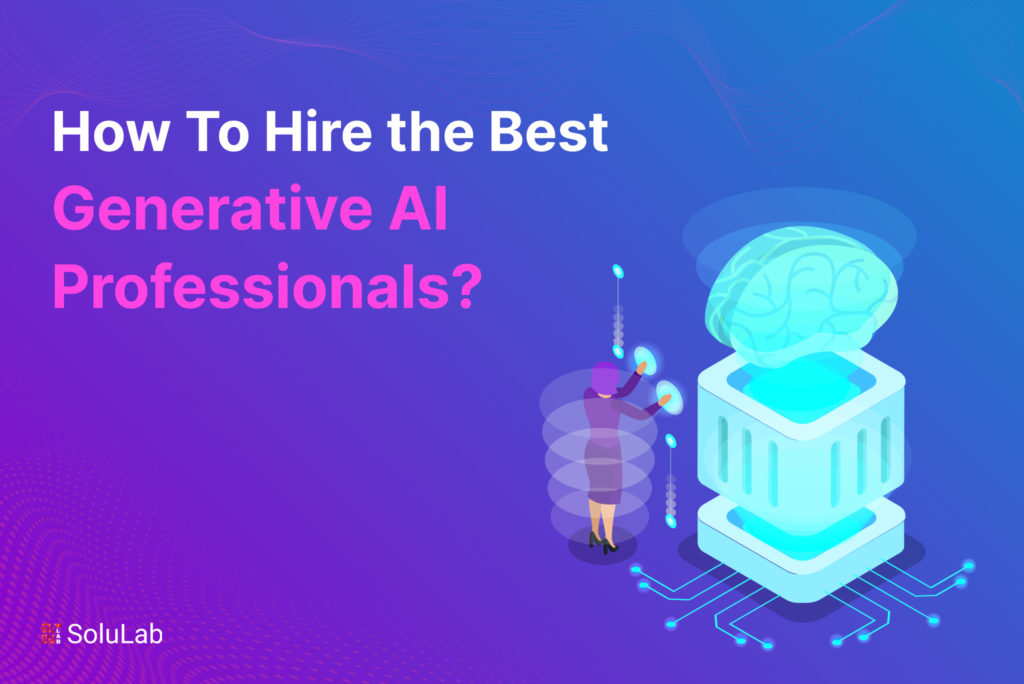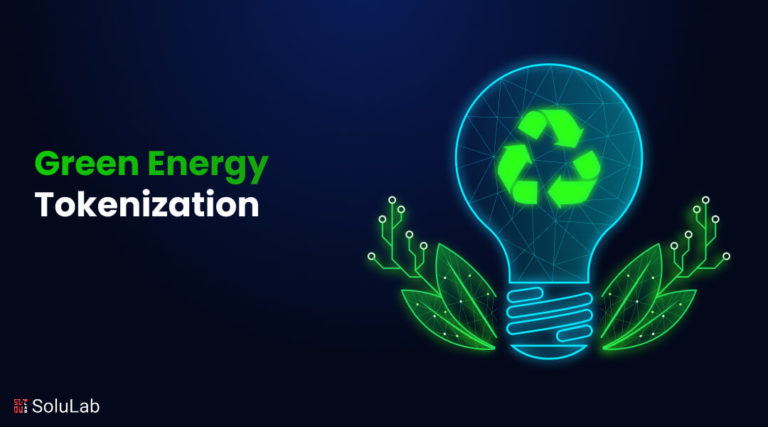
Generative Artificial Intelligence (AI) has emerged as a transformative technology with immense potential across various industries. As the demand for AI-driven solutions continues to rise, organizations seek highly skilled professionals in generative AI to drive innovation and gain a competitive edge.
As generative artificial intelligence (AI) continues to revolutionize industries across the globe, the demand for highly skilled professionals in this field is skyrocketing. Whether you’re a tech startup, an established company, or a research institution, finding and hiring the best generative AI professionals is crucial for leveraging the power of AI to its fullest potential. In this guide, we will provide you with essential tips and insights on identifying and recruiting top talent in generative AI.
Since a while ago, AI technologies have become more prevalent and have a bigger impact on hiring procedures. It’s understandable why: businesses are using strong generative AI to find the top candidates for their roles more quickly than ever before. In this post, we’ll examine the evolving dynamics of hiring and how generative AI fundamentally alters hiring managers’ jobs worldwide.
However, hiring the best generative AI professionals can take time and effort, considering the field’s complex nature and the scarcity of top talent. This comprehensive guide will delve into the key strategies and best practices to help you identify and hire the best generative AI professionals for your organization.
How Will Generative AI Affect Work in the Future?

Technological developments are reshaping the future of employment, and one technology primed to play a transformational role is generative artificial intelligence (AI). The capacity of machines to generate fresh and unique material, ranging from text, photographs, and videos to music and even entire virtual worlds, is called generative AI. The influence of generative AI on numerous businesses is becoming more apparent as it evolves. In this post, we will look at how productive AI is changing how we work and how it can potentially shape the future of work.
-
Enhanced Creativity and Innovation
Best Generative AI developers unleash creativity and innovation in the workplace. Using algorithms and neural networks, generative AI models may produce previously inconceivable ideas, designs, and thoughts. This technology enables experts to transcend traditional boundaries and explore new frontiers. Generative AI technologies bring unique views and fuel creativity for everyone, from graphic designers to architects.
-
Streamlined Content Generation
Content generation is crucial in many businesses, and generative AI is helping to streamline hiring process. Generative AI can produce text, graphics, and videos, freeing human resources for higher-level thinking and strategic decision-making. Copywriters, for example, may use AI-powered language models to develop drafts or product descriptions, while graphic designers might use AI technologies to create attractive images. Human-generative AI collaboration is increasing efficiency and production.
-
Customized Customer Experiences
Best Generative AI developers enable enterprises to scale the delivery of highly customized customer experiences. Generative AI algorithms may develop tailored suggestions, bespoke product designs, and personalized marketing campaigns. This level of personalization boosts client happiness, engagement, and business growth. Generative AI alters how businesses connect with consumers.
-
Augmenting Human Skills
Generative AI augments human skills rather than replacing human employees, resulting in more gratifying and meaningful employment. Generative AI frees professionals to focus on higher-level cognitive activities that involve human inventiveness, critical thinking, and emotional intelligence by automating repetitive jobs. This change allows people to express their creativity, solve complicated challenges, and add strategic value to their enterprises. Generative AI is emerging as a formidable technology that empowers rather than replaces human labor.
How to Choose the Best Generative AI Professionals in the Hiring Process?

Hiring the best generative AI developers is critical for firms looking to exploit artificial intelligence’s revolutionary capabilities in their operations. These experts have the expertise and abilities to inspire innovation, develop unique solutions, and move enterprises ahead. This will walk you through the recruiting process for the finest generative AI talent, ensuring your firm remains at the forefront of this quickly growing industry.
-
Create a Clear Job Description
To recruit the greatest generative AI specialists, you must first create a clear and attractive job description. Specify the credentials, abilities, and experience you want in candidates. Define the role’s tasks and expectations and the specific generative AI approaches, frameworks, and tools they should be familiar with. A well-written job description will attract individuals with the necessary skills.
-
Source Talent from Specialist Networks
Because generative AI is a specialist subject, it’s critical to tap into networks that can link you with qualified candidates. Engage with academic institutions, attend industry conferences, and participate in online AI and machine learning networks and forums. These platforms enable users to communicate with generative AI specialists, academics, and professionals. Networking with these networks will assist you in identifying top talent and staying up to speed on the most recent breakthroughs.
-
Assess Technical ability
Using a combination of examinations and interviews, evaluate candidates’ technical ability in generative AI. Candidates should be asked to present their portfolios or work samples demonstrating their familiarity with generative models such as Generative Adversarial Networks (GANs) or Variational Autoencoders (VAEs). Conduct technical interviews or coding challenges to test their mastery of relevant algorithms, programming languages, and frameworks. Examine their capacity to apply theoretical principles in real-world situations.
Read Our Blog: Top 10 Generative AI Development Companies
-
Examine Applicants’ Prior Experience and Projects
Examine applicants’ previous experience and projects to determine their ability to achieve measurable outcomes. Look for professionals who have successfully used generative AI concepts to solve real-world problems. Examine their contributions to creative initiatives, academic articles, or involvement in generative AI contests. Consider the significance of their effort, the intricacy of the obstacles they faced, and the results they obtained. This examination will give useful information about their problem-solving ability and inventiveness.
-
Assess Learning Agility
Generative AI is an ever-changing discipline, and experts must adopt an attitude of constant learning. Inquire about applicants’ attempts to remain up to speed on the newest breakthroughs to assess their learning agility. Inquire about their involvement with research articles, conference or workshop participation, or contributions to the open-source community. Professionals dedicated to continuous learning and adapting to new technology will likely prosper in this fast-paced industry.
-
Culture Fit and Cooperation Abilities
While technical capabilities are critical when employing generative AI practitioners, culture fit, and cooperation skills are equally important. As productive AI projects frequently require cross-functional collaboration, assess applicants’ abilities to work well in interdisciplinary teams. Assess their communication abilities, capacity to explain complicated subjects, and teamwork attitude. Seek employees who can adapt to various work contexts, contribute well, and build a collaborative and inclusive culture.
-
Ethical Awareness
Generative AI presents ethical concerns; candidates must understand and prioritize responsible AI practices. Inquire about their understanding of the prejudice, fairness, privacy, and ethical problems related to generative AI during the interview process. Assess their capacity to discuss and provide solutions to future ethical dilemmas. Hiring individuals dedicated to ethical principles guarantees that generative AI solutions be developed and deployed responsibly.
How Generative AI is Helping to Streamline Recruiting Operations?

Organizations that want to establish high-performing teams must focus on recruitment. Traditionally, recruiting operations were time-consuming and labor-intensive, requiring manual screening of resumes, conducting interviews, and determining applicant fit. However, with the introduction of generative artificial intelligence (AI), the recruiting environment is experiencing a paradigm shift. In this post, we will look at how generative AI improves recruiting workflows, reinvents applicant selection, and increases the hiring process’s efficiency.
-
Automated Resume Screening
Sifting through a huge volume of resumes to locate eligible applicants is one of the most time-consuming components of recruitment. By evaluating resumes, extracting pertinent information, and assessing candidate qualities, generative AI-powered applications may automate this process.
Generative AI can swiftly discover keywords, talents, and experience by employing natural language processing (NLP) algorithms, allowing recruiters to rank applicants that fit the job criteria. This automation saves recruiters time and effort, allowing them to focus on higher-level responsibilities.
AI can help job seekers improve their resumes by suggesting better formatting and keyword usage. Examples of ATS-friendly resumes show how clear layouts and targeted keywords can boost visibility in automated screenings.
-
Intelligent Candidate Matching
Generative AI systems excel in recognizing patterns and connecting them. Recruiting systems may use generative AI to match job requirements with candidate profiles by using these features.
Generative AI can automatically propose the best applicants for a particular post by assessing candidate data such as abilities, experience, education, and preferences. This simplifies the applicant shortlisting process, allowing recruiters to concentrate on the most promising individuals.
-
Individualized Applicant Engagement
By providing individualized interactions throughout the recruiting process, generative AI may improve applicant engagement. Chatbots driven by AI can screen candidates, answer commonly requested questions, and deliver real-time updates.
These AI assistants may mimic human-like discussions, enhancing the applicant experience and shortening response times. Generative AI enables a more efficient and candidate-centric recruiting process through tailored interaction.
-
Virtual Interviews and Evaluations
Generative AI is revolutionizing how interviews and evaluations are performed. Recruiters may gain important information from virtual interview systems that use generative AI to assess applicant replies, facial expressions, and body language.
Based on established criteria, these AI systems may recognize trends, evaluate communication abilities, and assess applicant appropriateness. By automating the review process, generative AI lowers prejudice and standardizes evaluations, resulting in more accurate and fair candidate assessments.
-
Recruiting Predictive Analytics
Generative AI algorithms can examine past recruiting data to uncover patterns and forecast applicant success. Generative AI use cases may give insights into a candidate’s chances of success in a certain role by assessing criteria such as educational background, work experience, and performance indicators.
Recruiters may use predictive analytics to make more informed hiring decisions and increase the quality of their recruits. This data-driven strategy decreases the possibility of biased decision-making while also improving overall recruiting outcomes.
-
Continuous Learning and Improvement
Generative AI systems may learn and develop themselves over time. These systems may continually improve their algorithms and models by assessing feedback, user interactions, and recruiting outcomes.
This iterative learning process allows generative AI platforms to improve candidate selection, evaluation, and matching accuracy. Recruiters may benefit from generative AI’s expanding capabilities, enhancing recruiting procedures and hiring outcomes.
What are the Recruitment Challenges Raised by Generative AI?
Since it can generate new information independently, generative AI, a branch of artificial intelligence, has attracted much attention. While generative AI has enormous potential in various fields, including recruitment, it also brings particular difficulties that businesses must overcome. In this post, we will examine some of the main issues that generative AI in recruitment raises and suggest possible solutions.
-
Bias in Training Data
To produce new content, generative AI models heavily rely on training data. However, biased outputs may result if the training data is distorted or biased. Biassed training data can reinforce existing biases and disparities in the context of hiring. For instance, if past employment decisions were biased, the generative AI model may learn to replicate similar preferences, resulting in unfair candidate selection.
-
Lack of Transparency
Generative AI models like generative adversarial networks (GANs) can be complicated and challenging to understand. Understanding how the models produce material and what factors affect their decision-making is difficult due to this lack of transparency. This opacity can cause issues with justice, accountability, and the ability to justify decisions made by generative AI systems in the context of hiring.
-
Data Security and Privacy
To train generative AI models efficiently, a lot of data is needed. This raises questions regarding the confidentiality and security of private applicant data. Personal data management mistakes or unauthorized access can lead to data misuse, identity theft, and privacy violations.
What are the Best Practices for Using Artificial Intelligence (AI) in Recruitment?

Generative artificial intelligence (AI) is revolutionizing the hiring process by accelerating workflows, enhancing candidate selection, and boosting productivity. Best practices must be adhered to as companies use generative AI in their hiring processes to maximize the benefits and avoid any challenges. To ensure successful implementation and results, we will examine in this post the recommended practices for using generative AI to recruit.
-
Establish Clearly Defined Objectives
Before incorporating generative Al into your hiring process, establish Clearly Defined Objectives. Determine the specific problems and difficulties that generative Al is intended to solve.
Having clearly defined goals helps to ensure that generative Al is used strategically and in line with your organization’s aims, whether they are to speed up the hiring process, increase candidate quality, or promote diversity and inclusion.
-
Quality Training Data
Generative Al models heavily rely on training data to produce accurate and reliable results. Ensure that your training data is high quality and represents the diversity of candidates you wish to attract.
Use comprehensive and representative datasets to avoid biased outcomes. Regularly update and augment your training data to ensure the generative Al model remains up-to-date and aligned with changing recruitment requirements.
-
Ethical Considerations
Adopt ethical considerations and responsible Al practices when employing generative Al in recruitment. Ensure transparency in communicating with candidates about using Al technologies in the selection process.
Take steps to mitigate bias by regularly monitoring and auditing the generative Al system’s outputs. Promote fairness and equal opportunity by continually evaluating and refining the algorithm to avoid inadvertently favoring certain groups.
-
Human-Al Collaboration
Generative Al should complement, not replace, human recruiters. Establish a collaborative approach that combines the strengths of both humans and Al.
Use generative Al to automate repetitive tasks, such as resume screening or initial candidate assessments, allowing recruiters to focus on high-level decision-making, candidate engagement, and relationship-building. Encourage ongoing feedback and communication between recruiters and the generative Al system to optimize performance.
-
Continuous Evaluation and Improvement
Regularly evaluate the effectiveness and impact of generative Al in your recruitment process. Monitor key performance indicators (KPIs) such as time-to-hire, candidate quality, and diversity metrics to assess the system’s performance and identify areas for improvement. Collect feedback from recruiters, candidates, and other stakeholders to gather insights and iterative enhancements to the general Al model – for example, using a QR code for Google Form during interviews can streamline feedback collection about candidate experience, technical assessments, or hiring panel input.
-
Transparency in Communication
Keep lines of communication with applicants regarding using generative Al in the hiring process open and transparent. Explicitly describe the function of Al technologies, the use made of the data, and any potential effects on the selection procedure. Respond to any queries or worries that candidates may have to promote trust and confidence in the hiring procedure.
-
Regular Training and Education
Provide hiring managers and recruiters with regular training and information about generative AI technologies and how to use them in the recruitment process. Make sure they are aware of the drawbacks, advantages, and possible biases of leading generative Al developers. With this information, recruiters are better equipped to work with AI systems, make wise choices, and keep the hiring process human-centric.
Conclusion
Hiring the greatest experts is essential to maximizing the potential of this technology in the quickly developing field of generative AI. You can locate people who suit your organization’s culture and have the appropriate skills, knowledge, and experience by taking a strategic approach. Key elements in the hiring process include identifying your needs, evaluating technical capabilities, studying portfolios and projects, keeping up with the most recent research, assessing problem-solving skills, and taking teamwork and communication skills into account.
Recall that the best generative AI developers should have a solid educational foundation, appropriate experience, and comprehensive knowledge of machine learning and deep learning frameworks.
A crucial thing to consider is their capacity to provide realistic and original material across many areas. Additionally, their ability for problem-solving, cultural fit, and communication skills will facilitate productive teamwork inside your organization.
Hiring the top experts will guarantee that your company stays at the cutting edge of innovation as the field of generative AI develops. You may use the potential of generative AI to foster innovation, resolve challenging problems, and accomplish the goals of your organization by bringing in top talent.
SoluLab harnesses the proficiency of its team of AI experts, well-versed in a wide range of AI technologies, to develop potent Generative AI models and solutions. If individuals or businesses are seeking state-of-the-art generative AI development services customized to their specific needs, SoluLab is the right choice. Contact SoluLab today to discover how their Generative AI solutions can elevate digital creations.
FAQs
1. How will generative AI affect work in the future?
Generative AI will enhance creativity and innovation, streamline content generation, enable customized customer experiences, and augment human skills in the workplace. It will revolutionize industries by generating fresh ideas, automating repetitive tasks, and providing personalized solutions.
2. How to choose the best generative AI professionals in the hiring process?
To hire the best generative AI professionals, create a clear job description, source talent from specialist networks, assess technical abilities and prior experience, evaluate learning agility and collaboration skills, and prioritize ethical awareness in candidates.
3. How is generative AI helping to streamline recruiting operations?
Generative AI automates resume screening, enables intelligent candidate matching, enhances individualized applicant engagement, revolutionizes virtual interviews and evaluations, and provides recruiting predictive analytics for better hiring decisions.
4. What are the recruitment challenges raised by generative AI?
Generative AI in recruitment raises challenges such as bias in training data, lack of transparency in AI models, and concerns regarding data security and privacy. Organizations must address these challenges by ensuring unbiased training data, promoting transparency, and prioritizing data security and privacy measures.






